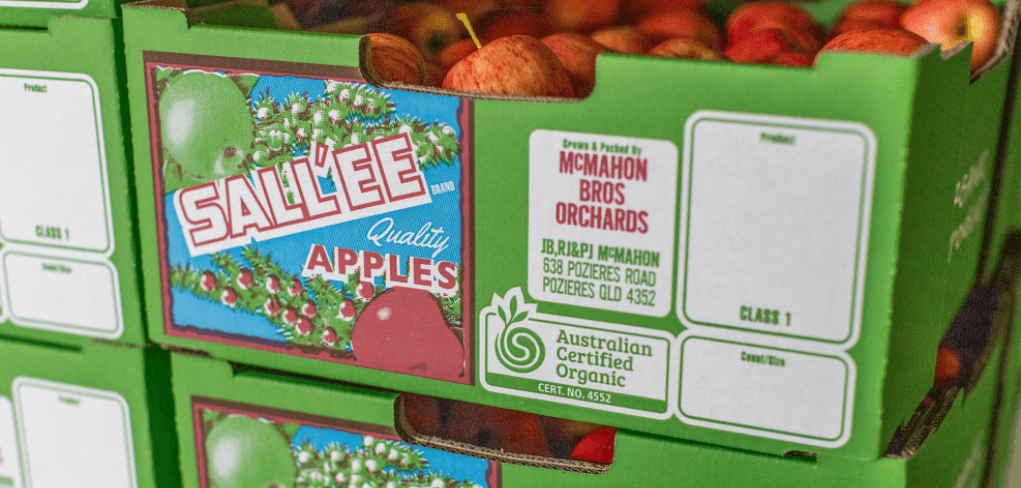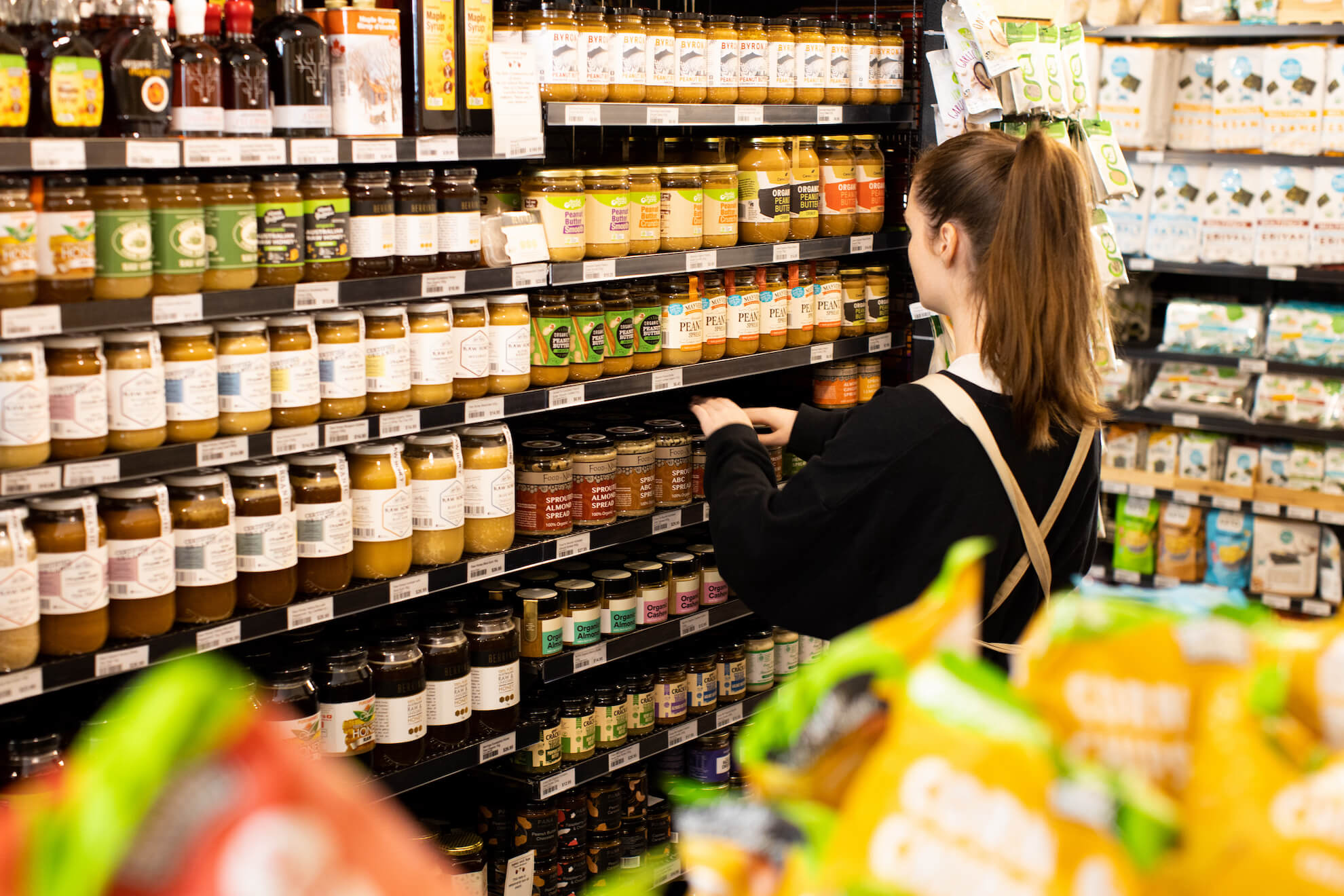Domestic Regulation of the organic industry refers to the regulation of all brands, businesses and farmers (known collectively as ‘operators’) claiming to sell organic goods. This includes operators based in Australia (domestic) or importing goods from overseas markets to sell in Australia.
Currently, the only organic products regulated in Australia are those being sold for export. These products come under the National Standard for Organic and Bio-Dynamic Produce (the National Standard for short). The majority of organic operators become certified to the National Standard as part of the process to certify their organic products. This process is currently only voluntary for domestic sales in Australia through the use of certification bodies.
Australia is currently the last country in the developed world not to have a set domestic standard for the use of the term ‘organic’.
In Australia, there are currently five certification bodies that certify organic operators to the National Standard and are approved by the Department of Agriculture, Fisheries and Forestry. Each organic certification body has its own organic certification mark. This includes the Australian Certified Organic ‘Bud’ logo, currently the most recognised organic mark by Australian shoppers, which is owned by Australian Organic Limited and is licensed to organic certification body ACO Certification Ltd.
The full list of certification bodies in Australia can be found on the Department of Agriculture’s website here.
The National Standard is the leading standard for organic certification in Australia. The Australian Certified Organic Standard (ACOS) is largely based on the National Standard but has more detail in some areas.
There are three main issues due to the lack of a domestic standard in Australia:
As a consumer, you deserve to trust that the organic product you are buying is actually organic. Currently in Australia, without domestic regulation, this cannot be guaranteed.
Unfortunately, there are still products on our shelves that claim to be organic but are not certified and are therefore not being held accountable for the organic claims on their packaging. These products make consumers raise questions around the authenticity of not just organic products but of the entire organic industry, and consumer confidence around organics is therefore shaken.
The worrying statistic that 33% of Australian consumers believe they have been previously misled by organic claims on product packaging proves that non-certified organics are still getting to our shelves.
Introducing domestic regulation will help to close these gaps and increase overall consumer confidence in the organic industry.
Organic operators face questions about the integrity of their products regardless of their certification status. The rise in ‘non-certified organics’ in the marketplace is undermining the hard work that certified organic businesses do by increasing consumer mistrust. For operators selling products domestically, this means more time and resources need to be put in place to combat accusations that their products are not organic which inevitably means costs are then passed down to the consumer.
For operators looking to export their organic products, there is also a lack of consistency with other export markets due to the lack of a domestic standard. If they want to export across multiple markets, they are often required to obtain different certifications for each market. These are additional costs that Australian organic operators need to take on board, whereas operators from countries with domestic regulation are paying less to export their products. This puts Australian exporters at a severe disadvantage and has prevented some operators from reaching new markets.

If you are ever unsure, contact the brand or business and ask them for more information. They may have used imported products and it may be worth asking where these ingredients or products are from. If the business does not provide a satisfactory response you may wish to make a complaint to the Australian Competition and Consumer Commission (ACCC) that the organic product you purchased is not organic.
This can be done via the ACCC’s website under misleading, false or deceptive claims. While there is no legal requirement for organic certification for a product to be described as ‘organic’ in Australia, businesses are still required to be able to substantiate organic claims.
Until domestic regulation is developed to create a legal requirement for organic products sold within Australia to be certified organic, it remains difficult to prove these misleading claims.
If you believe you have been the victim of a misleading, deceptive or false claim of organics please visit the ACCC’s page on Organic Claims for more information.

Since February 2019, Australian Organic Limited (AOL) has been working tirelessly with members of the Government, Government Departments and other industry groups to push for domestic regulation in Australia.
In June 2020, AOL prepared a discussion paper for the Government and the current Minister for Agriculture, David Littleproud. This paper outlined the options for domestic regulation of the organic industry in Australia.
Following the discussion paper, Minister Littleproud announced the formation of the Organics Industry Advisory Group (OIAG) in December 2020, of which AOL was a member. AOL was able to contribute to the discussions on regulatory options and work with the other members on recommendations for regulation and the pros and cons of each option.
Following this process, the OIAG regrouped in December 2021 after Minister Littleproud announced a Regulatory Impact Statement (RIS) process would take place. As an original member of the OIAG, AOL was invited back to continue the discussions on these options as well as non-regulatory options such as increased education for industry and consumers.
Of the options being presented, AOL believes legislation is the most likely to bring forward a domestic standard that can be used to help solve the issues of consumer confidence, operator integrity and market access.
The Labor Party won the 2022 federal election in May, bringing about a short pause in the organic domestic regulation process as the new Department of Agriculture took shape and dealt with other pressing matters. AOL met with new Minister for Agriculture Murray Watt in November 2022, who was receptive to the notion of continuing the work the previous government undertook before the federal election was called.
On 30 March 2023, more than 12 months after the Consultation RIS process concluded, Minister for Agriculture Murray Watt announced that the Australian Government will not progress a domestic regulatory framework for organics. The Minister stated that the “…costs would outweigh the benefits”, based upon cost benefit analyses (CBA) that were conducted regarding regulatory pathways. AOL published a media release on 31 March 2023 in response to this announcement.
Since this announcement, the Australian organic industry has continued to advocate strongly for a domestic regulatory structure that will support the future of the sector.
If you wish to learn more about domestic regulation, review the discussion paper or sign our Statement of Support please see here.
Australian Organic Limited (AOL) is the peak body for the organic industry.
AOL acknowledges the Traditional Custodians of the land on which we operate, the Turrbal and Yuggera people. We extend our respect to Elders past, present and emerging.